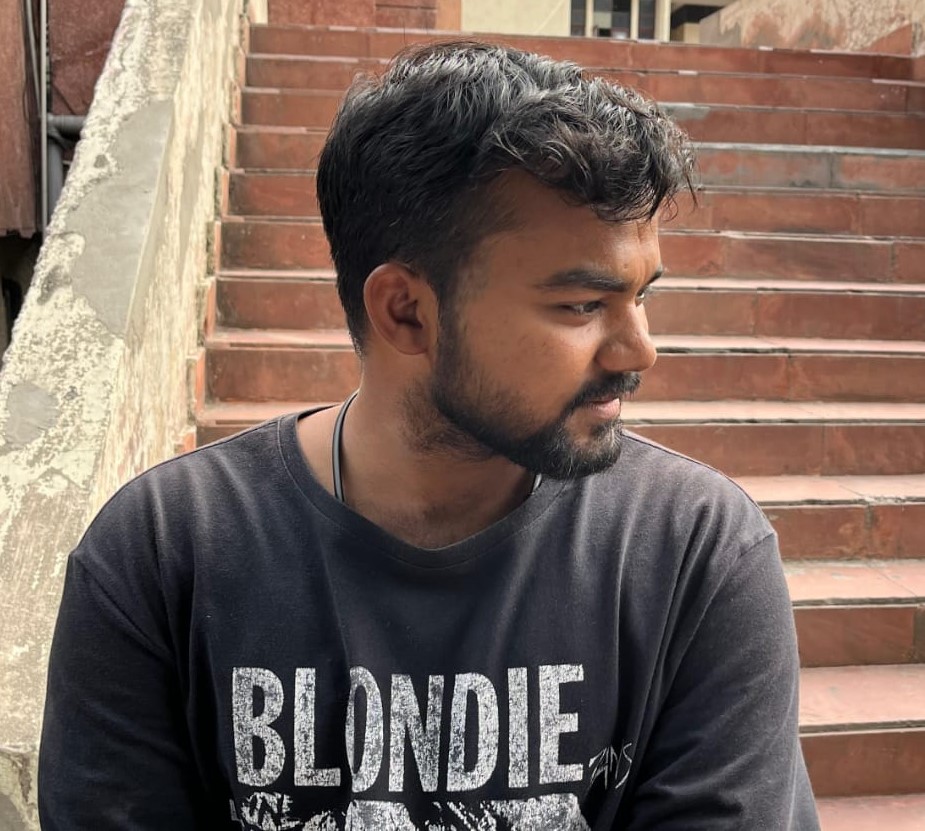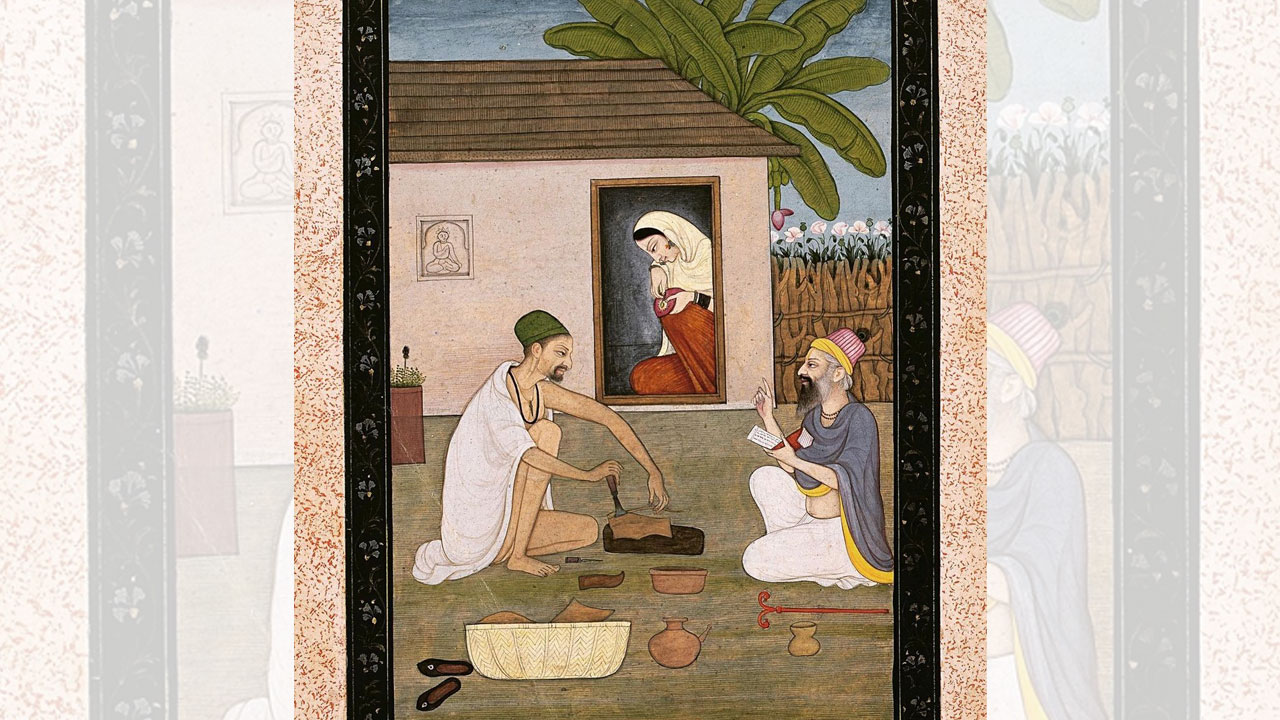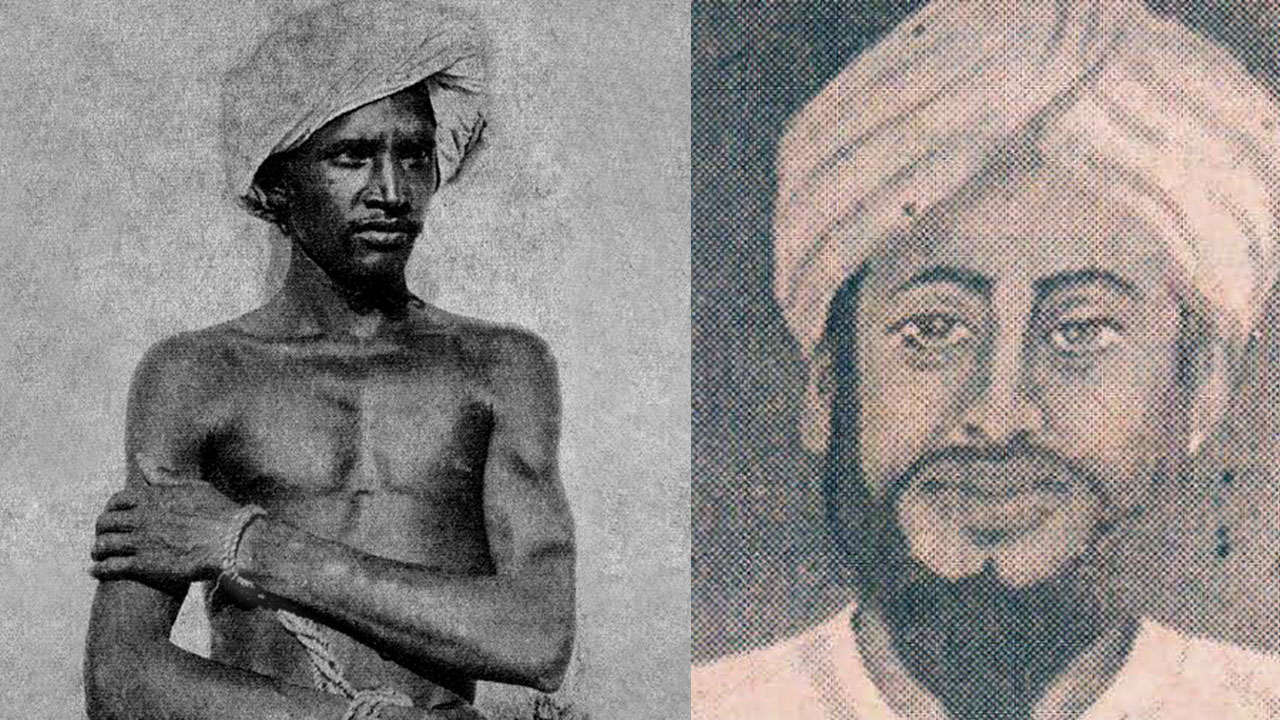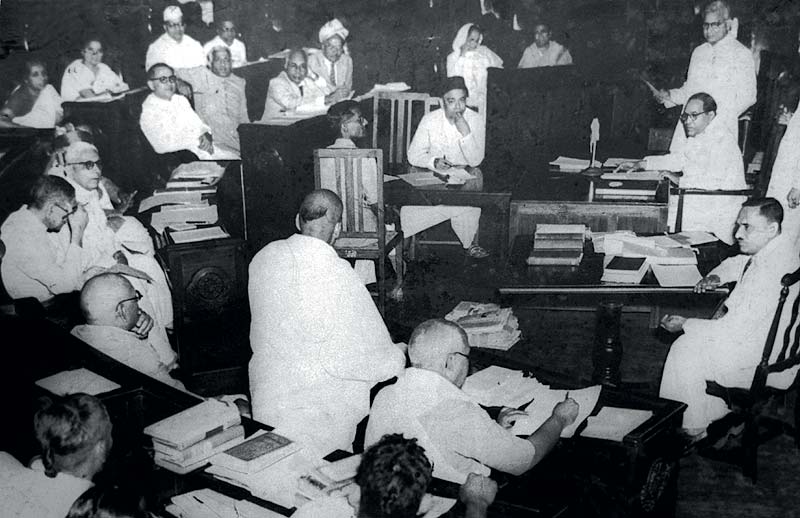“I solemnly assure you that I will not die a Hindu.” These were the words of Babasaheb Ambedkar at the historic conference held at Yeola, Nashik, on 13 October 1935. This “assurance” of liberation from institutionalized caste discrimination was followed by a conference held a year later in Dadar, Bombay, where Dr Ambedkar delivered his famous address “What way Emancipation?” The main aim of this conference held on 30-31 May 1936 and attended by 35,000 Untouchables of the Mahar community was to assess the support of the Depressed Classes for the conversion movement. What would be a historic, decisive conversion two decades later was defined and justified in terms of liberty, equality and fraternity.
The sheer dedication and enthusiasm of the Depressed Classes present at the conference appeared in the slogans on display, such as:
- Man is not for religion, religion is for man.
- To become humane, convert yourselves.
- To get organized, convert yourselves.
- To achieve strength, convert yourselves.
- To secure equality, convert yourselves.
- To get liberty, convert yourselves.
The initial proceedings before Dr Ambedkar’s address threw up some critical questions for which the answers had to be found. There were important reflections on the Hindu religion that forbid the Depressed Classes from the identity of being a human. Some of these reflections, also on display, were:
- A religion which precludes one class from getting education, forbids it to accumulate wealth, to bear arms, is not a religion but a mockery of human life.
- A religion that compels the illiterate to remain illiterate, the poor to remain poor, is not a religion but a punishment.
- Those who profess that God is omnipresent but treats men worse than animals, are hypocrites. Do not keep company of such people.
- Those who feed ants with sugar but kill men by prohibiting them from drinking water are hypocrites. Do not keep their company.
The conference was held in the presence of special invitees, Stanley Jones, an American missionary, and B.J. Jadhav. It was also attended by leaders from different religions who were eager to know more about Dr Ambedkar’s “conversion proclamation”. Thus, even before Ambedkar got up to speak (in Marathi), the conference was all set to implement the resolution passed at Yeola and figure out ways and means to realize the objective.
Dr Ambedkar’s address
Dr Ambedkar began his address applauding the “mammoth gathering” of the Depressed Classes with a crucial objective. Before turning to the core subject, he emphasized the intensity and potentialities of conversion. He said that religious conversion was no child’s play and that it couldn’t be achieved with merely political measures. It had to be realized on real foundations, he said, and without public consensus, conversion of any sort couldn’t be implemented. “Just as a boatman has to make all necessary preparations before he starts for voyage, so also we have to make such preparations. Without this, it will not be possible to reach the other shore. But as the boatman does not load the luggage unless he gets an idea of the number of passengers boarding the boat, so also, my position is like him and I cannot proceed without definite facts. Unless I get an idea as to how many persons are willing to leave the Hindu fold, I cannot start preparation for the conversion.”

Although this conference was meant for the Mahars, this didn’t mean it ignored the larger question of untouchability. It was to get an accurate sense of public interest and consciousness on the issue, that this conference was limited to one community. Dr Ambedkar argued that due to the heterogeneity in terms of castes, public opinion could vary and that even this conference, largely attended by the Mahars, couldn’t be taken to constitute a homogeneous public opinion. Context and public opinion vary across time and space.
Material aspect of conversion
The matter of conversion according to Dr Ambedkar was “social as well as religious; material as well as spiritual”. To understand the underlying meaning and aspects of conversion, it was necessary to understand how “untouchability” was institutionalized to affect the daily lives of the Depressed Classes. Dr Ambedkar cited numerous examples of daily experiences of untouchability by the Depressed Classes. For a comprehensive understanding of untouchability, it is important to draw out the essence of Dr Ambedkar’s declaration at Yeola. Dr Ambedkar urged the Mahars to remember the pain of atrocities and injustices perpetrated by the caste Hindus against them. Dr Ambedkar, who himself was born into an untouchable caste and family, reminded the audience the ways in which they are oppressed. He stated, “The Untouchables are beaten for putting on clothes of superior quality. They have been whipped because they used utensils made of metal like copper, etc. … They are beaten for putting on the sacred thread on their body. They are beaten for refusing to carry dead animals and eat carrion, or for walking through the village road with socks and shoes on, or for not bowing down before the caste-Hindus, for taking water in the copper pot while going out in the field to ease. Recently, an instance has been noticed, where the Untouchables were beaten for serving chapatis at a dinner party. You must have heard and some of you must have also experienced such types of atrocities.”
This is a matter of class struggle
Shedding light on the “social” in caste oppression, Dr Ambedkar said that such atrocities don’t entail the “feud between two rival men”. Oppression is rooted in the social and religious construction of values and entitlements. Untouchability has a social basis in this construction. The matter of untouchability also reveals the matter of class struggle between Caste Hindus and Untouchables. According to Dr Ambedkar, “The problem of the Untouchability is a matter of class struggle. It is a struggle between Caste Hindus and the Untouchables.”
Untouchability has its sanction in the class struggle. However, it is to be noted caste was an “enclosed class” in Dr Ambedkar’s theorization. This enclosed class was a “closed door system” that restricted social mobility. All the caste-based injustices being committed against the Untouchables depicted the class relations, too. Their aspiration to rise from their low social status was a threat to caste Hindus. Furthermore, Dr Ambedkar argued that the struggle for liberation from untouchability and stigma of caste is a never-ending reality within the Hindu fold.
Achieve power first
Untouchables never inherited any sort of power in the traditional Indian social structure. If we read Jotirao Phule, it is evident from his theorization that caste existed as the struggle between Brahmanism and non-Brahmanism. It was an attempt by Phule to reconcile with historical materialism to counter Brahmanism. It was “slavery” in Phule’s conception. In his address, Dr Ambedkar presents three conceptions of power:
- Man-power
- Wealth
- Mental Strength
Because Untouchables constituted only an eighth of the population of Bombay Presidency, they did not meet the criterion of majority. Heterogeneity as a result of different sub-castes also prevented them from any “social organization”. Historically, Untouchables haven’t owned land. They are landless cultivators surviving on food scraps of caste Hindus. The stigma of caste alienated the sense of self in Untouchables. It has led to psychological enslavement. This sense of loss of self and persistent pessimism can be understood through Dr Ambedkar’s words: “For centuries, you have not only served the higher caste but also tolerated their insults and tyranny without grudge and complaint, which has killed the sense to retort and revolt. Confidence, vigour and ambition have completely vanished from you. All of you have become helpless, unenergetic and pale. Everywhere, there is an atmosphere of defeatism and pessimism. Even the slightest idea that you can do something, does not arise in anybody’s mind.”
Why are you only oppressed?
In this section, while pointing out the unity and organization of Muslims, Dr Ambedkar highlighted the helplessness of Untouchables in the villages. He said that faced with the Hindu majority of the villages, the Untouchables were always more vulnerable to injustices than the Muslims, even when the latter were smaller in number, because caste Hindus were aware of the helplessness of the Untouchables. The Untouchables are not organized either. They lack a collective consciousness. Building on these predominant realities, Dr Ambedkar argued that a collective strength is required to defeat the brahmanical tyranny. He also knew that they needed to gather enough strength to counter the tyranny of caste Hindus. But they didn’t have the strength themselves. It had to be secured from outside.
Strength needs to be brought from outside
In this section of his address, Dr Ambedkar emphasized the predominant sociopolitical landscapes that shape the discourses in this country. He said, “The casteism and religious fanaticism in this country, as I see it, had a very peculiar effect on the minds and morality of the people. In this country, nobody seems to be pained by the poverty and sufferings of the people. And if at all anybody is pained, he does not try to eradicate it. People come to the help of those in poverty, sorrow and suffering but only amongst one’s own caste or religion.” While caste Hindus are not moved by the Untouchables’ sufferings, even adherents of other religions stay away from the Untouchables for the fear of being identified with their “low status”. Thus casteism and religious fanaticism overtakes all other important issues. Untouchables lack any sort of power to shape public opinion, conscience and consciousness, as established religions have done so far. Ambedkar reasoned that such power could be acquired by converting to another religion.
Spiritual aspects of conversion
In this section, Dr Ambedkar touches on the questions associated with the term religion. He lays out Tilak’s definition. “That which governs people is Religion.” This is the true definition of Religion, said Dr Ambedkar, and sought to substantiate it. Rules are the founding pillars of religion that govern society. However, who decides the nature of these rules and relations is a matter of debate. This has to be understood in the context of individuals and society. Modern philosophers who have tried to answer this question have postulated three different strands – the ultimate goal of society is to achieve happiness of the individual; societies exist to develop the inherent qualities and self of the individual: and the chief aim of social organization is the creation of an ideal society. Ambedkar believed in the second postulation but Hindu religion does not recognize individual rights and desires. It doesn’t leave space for the realization of self. Dr Ambedkar was sympathetic towards the negative conception of liberty – freedom from constraints – and held the foundations of Hindu religion responsible for this conception.
Dr Ambedkar opined that the positive conception of liberty denotes self-mastery, self-control, self-realization and self-development and is free from external constraints. Three elements required for individual development are sympathy, liberty and equality. Hindu religion denies these values to the Untouchable. There is an absence of equality in Hindu religion. Concrete forms of inequality like the caste structure exist only in Hinduism. Untouchables are treated worse than animals by virtue of their caste hierarchy. Dr Ambedkar said, “If you have to get rid of this shameful condition, if you have to cleanse this stigma and make this precious life graceful, there is only one way and that is to discard the Hindu religion and the Hindu Society.”
Have you any freedom in Hindu religion?
According to Dr Ambedkar, “The freedom of mind is the real freedom. A person whose mind is not free, though not in chains, is a slave. One whose mind is not free, though not in prison, is a prisoner. One whose mind is not free, though alive, is dead.” His conception of freedom was beyond the traditional understanding that limited it to merely utilitarianism. Individuals born with the stigma of caste are not only enslaved in physical terms, but they are mentally enslaved, too. Therefore, the freedom of mind is what brings about self-mastery and self-development in individuals. He urged the attendees to leave the fold of Hindu religion for the sake of individual freedom and not be consumed by pessimism under mental slavery.
Further, addressing the essence of symbols like name, surname and titles, Dr Ambedkar observed that merely changing names wouldn’t help Untouchables escape the web of caste hierarchy. It may not be a permanent solution to the eternal problem. “Instead of changing one name today and another tomorrow, and thus remaining in a state of pendulum, I ask you, therefore, why you should not change your name permanently by changing your religion.”
Religious conversion was not going to be easy, and many political opponents argued and wondered if Dr Ambedkar might fail in this experiment. Many critics held on to the traditional understanding that the religion long practised by ancestors couldn’t be altered. Understanding the gravity of conversion, Dr Ambedkar along with his followers, continued with the optimism of better, inclusive social conditions. Also, he put forward several insights from history to support his objective of conversion. People adopted Jainism and Buddhism voluntarily in ancient India. Hindu religion imposed on the Untouchables was a form of slavery according to Dr Ambedkar. So, critics who claimed that Hindu religion was a voluntary religion were deeply prejudiced. Untouchables were compelled to follow the Hindu religion, out of helplessness. Dr Ambedkar explains, “Thus this Hindu Religion is not the Religion of our ancestors, but it was slavery thrust upon them. Our ancestors had no means to fight this slavery and hence they could not revolt.” Addressing the “difference between man and animals”, Dr Ambedkar argued there were underlying differences between the wise man holding the progressive and normative vision and those who romanticized the status quo. A wise man would have a scientific, rational approach while changing religious orientation and would not be bound by his ancestral heritage. This, Ambedkar said, is also the difference between animals and humans.
Dr Ambedkar was sure that Hindu society had hit the dead end of reformation. He was also sceptical of the several Hindu reformers, including his political opponent M.K. Gandhi. He observed , “Gandhi who pilots the non-violent agitation against the British Government is not prepared even to hurt the feelings of the Hindus, the oppressors of the Untouchables. He is not willing to launch a Satyagraha against them. He is not even prepared to take legal action against the Hindus. I do not see any good of such reformers.”
Progress or conversion?
Dr Ambedkar prioritized conversion over economic reform. The Untouchables’ terrible material conditions were the consequence of their social location (in the caste hierarchy). Their birth-based identity was the reason for their other identities. “Whatever means you may use for the economic progress of your own efforts will be frustrated due to the Untouchability. Untouchability is a permanent obstacle in your path of progress. And unless you remove it, your path cannot be smooth and without conversion, this hurdle cannot be removed,” said Dr Ambedkar.
Before concluding his address, Dr Ambedkar provided valuable insights into the two major problems facing the Depressed Classes. The Yeola conference dealt with the first problem – “whether to remain in Hindu religion or not”. The second problem was which religion to adopt. It was necessary to dwell on the first problem to achieve a public consensus. The second problem would be dealt with 20 years later, months before Dr Ambedkar’s demise.
Two doubts that nagged the Untouchables were regarding the Watan (hereditary rights of village servants) and political rights. Dr Ambedkar assured them, citing laws and previous instances of conversions of Mahars, that they are going to neither lose Watan – although he was for abolition of Mahar watan altogether –nor political rights after the conversion; rather, Untouchables wouldn’t have any political safeguards in the Hindu structure. In his concluding remarks, Dr Ambedkar said that his reason for choosing conversion was “spiritual”, which appealed to his conscience and consciousness. He said that the others who shared different visions and opinions were free to remain as their individual reasoning demanded. In this seminal address to the Mahars, Babasaheb presented the reasons, answered the critics and laid the foundations of his conversion. He shed light on the material, social, spiritual and political aspects of the conversion. Social freedom was at the core of Dr Ambedkar’s path of emancipation. This social freedom was necessary for both individual and community’s development and could only be achieved through conversion. Dr Babasaheb Ambedkar also gave hints to the future conversion in the last part of his address by referring to the last message of Buddha to Bhikku Sangha before his Mahaparinibbana, mentioned in the Mahaparinibbana Sutta. In a reply to his beloved student Ananda, Buddha said, “So Ananda, be self-illuminating like the Sun. Don’t be dependent for the light like the Earth. Believe in yourself, don’t be dependent on others. Be truthful. Always take refuge in the truth and do not surrender to anybody.”
Dr Ambedkar said, “I also take refuge in the words of the Buddha. Be your own guide. Take refuge in your own reason. Do not listen to the advice of others. Do not succumb to others. Be truthful. Take refuge in truth. Never surrender to anything. If you keep in mind this message of Lord Buddha at this juncture, I am sure, your decision will not be wrong.”
Forward Press also publishes books on Bahujan issues. Forward Press Books sheds light on the widespread problems as well as the finer aspects of Bahujan (Dalit, OBC, Adivasi, Nomadic, Pasmanda) society, culture, literature and politics. Contact us for a list of FP Books’ titles and to order. Mobile: +917827427311, Email: info@forwardmagazine.in)





